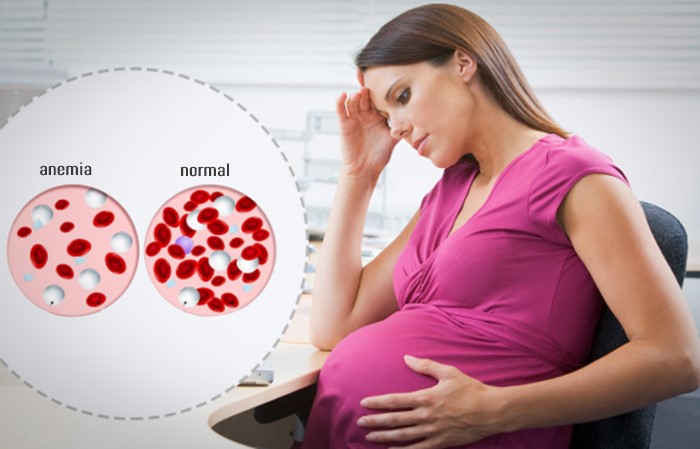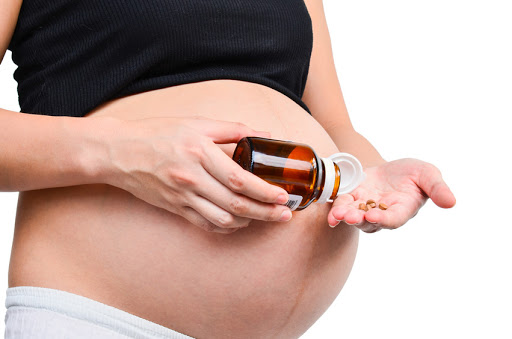Anemia in pregnancy is a condition that must be prevented. The occurrence of red blood cell deficiency far from normal limits not only raises the risk for pregnant women, but also interferes with fetal development.
Red blood cells are responsible for delivering oxygen to all organs of the body. Well, in case of anemia or lack of red blood are the symptoms of dizziness and fatigue occurs because the organ in the body does not receive enough oxygen and nutrients.
Although its common and often experienced by pregnant women, anemia or commonly known as low iron needs to be a concern.
Being anemic while pregnant can cause:
- Stunted development of the baby in womb,
- Increases the risk of premature birth
- Result in low birth weight babies
- Postpartum bleeding after childbirth.
Anemia in pregnancy that is not treated immediately will increases the risk of the pregnant mother losing a lot of blood during childbirth or called postpartum bleeding.
Symptoms of Anemia in Pregnancy

In general, the symptoms of anemia are dizziness and fatigue. Unfortunately, this condition is sometimes ignored by pregnant women.
Especially for severe anemia in pregnancy may not showed obvious symptoms. But if you detect symptoms too late, of course, undesirable complications can occur.
Here are the signs and symptoms of anemia in pregnancy:
- Weakness and fatigue
- Dizziness
- Chest pain
- Irregular heartbeat
- Difficulty concentrating
- Hard to breathe
When pregnant women feel these symptoms, it is better to immediately do a blood test (hemoglobin level).
Because if left unchecked will caused severe anemia in pregnancy and certainly adversely affects the baby in womb.
Ideally, the blood tests done once during the first trimester and again in the third trimester. Pregnant women must know that, right?
Causes of Anemic While Pregnant

Anemia or also called low iron can happen to anyone. However, pregnant women are known to be more susceptible to this condition.
In pregnant women, the following are things are the risk factor of low iron during pregnancy:
- Less consumption of foods with iron and folic acid.
- Experiencing morning sickness
- Alcohol and coffee consumption habits
- History of anemia before pregnancy
- Pregnancy at a ealry age
Points above to be the cause of low iron in pregnancy. As a result the body is unable to drain oxygen because of the lack of red blood cells in charge of delivering oxygen.
Anemia Treatment in Pregnancy

A healthy pregnancy is certainly expected for optimal fetal development. Here are ways of anemia treatment in pregnant women:
- Taking prenatal vitamins and folic acid supplement for pregnant women. Remember to consult with your doctor first.
- Increase intake of iron-rich foods such as meat, green vegetables such as spinach, beans, cereals, egg yolk, etc.
- Increase consumption of food sources of vitamin C which helps the absorption of iron in the body. For example oranges, kiwis, tomatoes and so forth.
- Avoid drinking coffee and alcohol. Both of these drinks can inhibit absorption of iron in the body.
Also read: Eating Spinach, Superfood for Pregnant Women
Notes from DeveHealth:
For a healthy pregnancy, it is important need to pay attention in daily food intake to prevent anemia or low iron while pregnant. Always balance the intake of meat, green vegetables and fruits.
Although the symptoms are common, such as dizziness and fatigue, but do not ignore it! Immediately check if this happens continuously.




